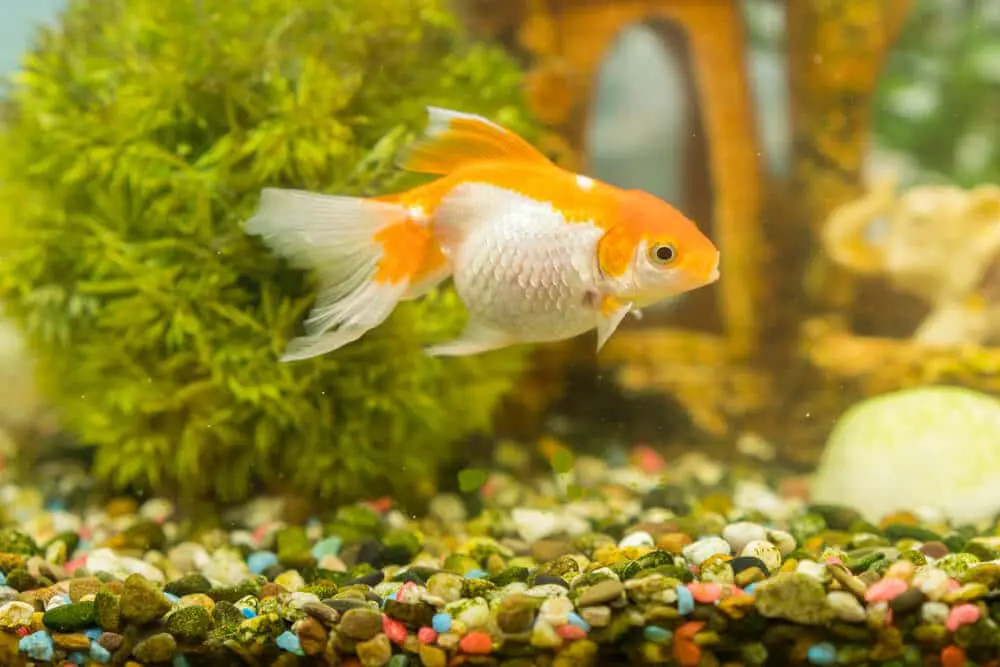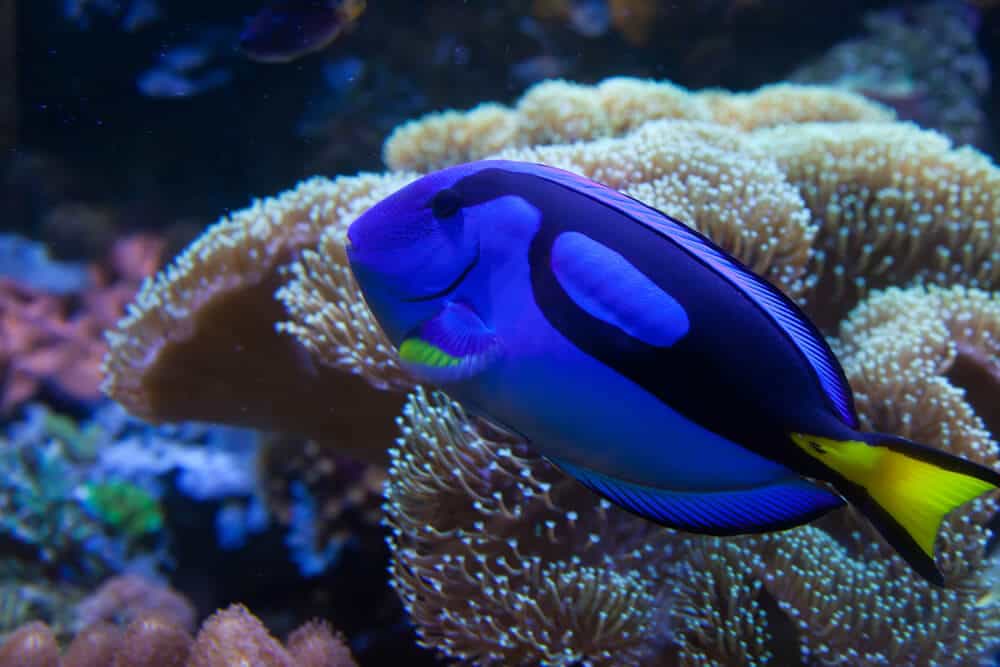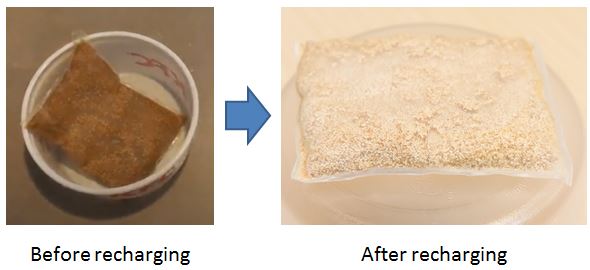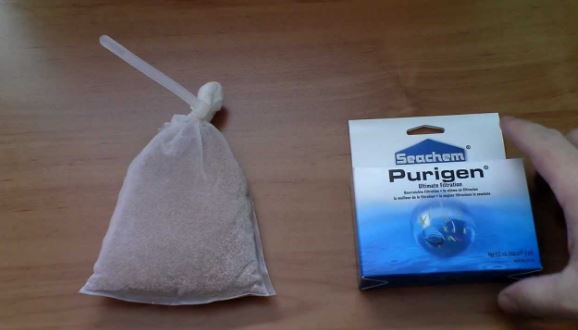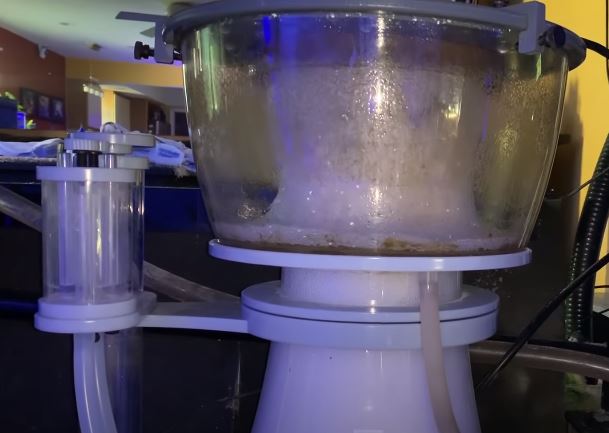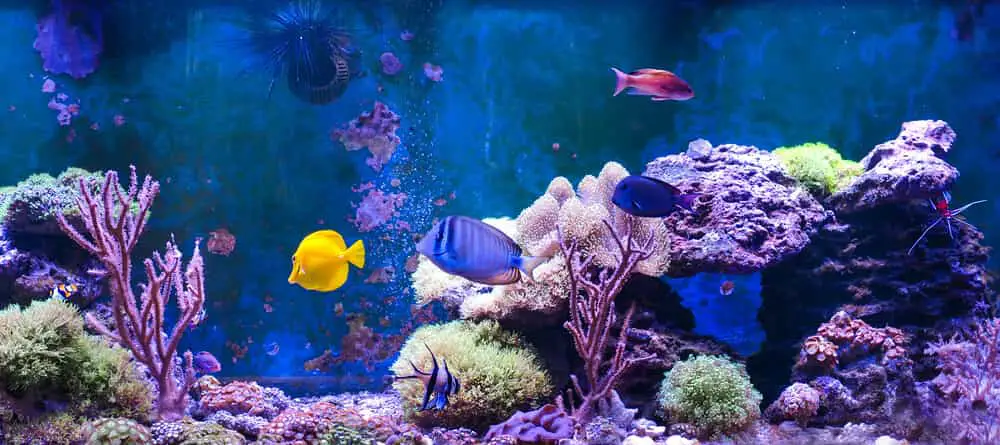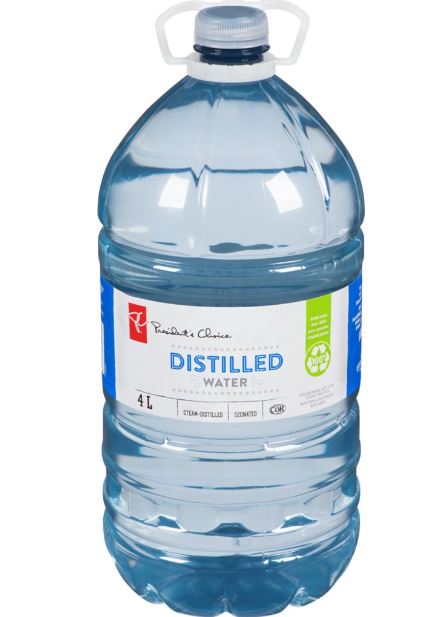
Studies have shown that fish tend to thrive better in aquariums that are filled with natural or fresh water that hasn’t been stripped of all its mineral contents.
Therefore, using distilled water for your fish tank requires some technique.
I bet a lot of you aren’t probably aware of this yet.
However, it doesn’t rule out the fact that you could also pop in some bottled water or any other source of distilled water into your aquarium.
When the need arises, there’s certainly no harm in mixing distilled water with mineralized water for your fish tank, as long as you do it rightly.
There are several ways to do this and I’ll be showing you in this post.
So make sure to stick around till you’ve completely read it all.
Contents
- What exactly is distilled water?
- So, what happens when you use only distilled water for your fish tank?
- When NOT to use distilled water in your fish tank.
- When should you use distilled water for your fish tank?
- What is the safest way to use distilled water in your fish tank?
- Proper tank and water maintenance
What exactly is distilled water?
For anyone like me who didn’t get to take a science course in high school, this term might seem a bit strange.
Let me give you a clear picture of what distillation means.
It’s a purification process which involves heat up some water till it boils and begins to evaporate as steam. Then, the water now in form of steam is cooled at a very low temperature and allowed to condense back into its initial liquid form.
I know what you’re thinking.
Since it was originally liquid, why go through the stress of boiling it first before condensing it back to liquid form again?
That’s the whole essence of distillation!
As the water evaporates, solid minerals are left behind and do not condense. This makes distilled water very pure and free of any kind of contaminants.
So, what happens when you use only distilled water for your fish tank?
As you’d expect, a lot goes into making the decision on the type of water to use in your fish tank. That being said, using an exclusive supply of distilled water isn’t safe for your fish.
When you do this, you’re putting them in harm’s way as there’s no source of vital minerals for them.
Also, this would have a negative effect on the pH stability and other enabling factors which determine the survival of your fishes.
When NOT to use distilled water in your fish tank.
Regardless of the fact that distilled water is a purified form of water, there are situations when you shouldn’t even think about using it in your fish tank.
Distilled water lacks all kinds of essential minerals for your fish and this poses a huge problem because they need these minerals for survival.
So, when shouldn’t you consider filling your fish tank with distilled water?
Never use distilled water when you’re changing water in your fish tank!
I hope you got that clearly, right? The reason for this is because of the immediate change in pH that this will cause. Fish respond to any abrupt change in pH and are susceptible to its harmful effects.
When should you use distilled water for your fish tank?
In case you haven’t noticed, the natural habitat of fish in general isn’t an entirely pure form of water. The oceans, streams, lakes, rivers and other water bodies are not free of minerals or other components.
It is very important that you know the right time to add distilled water to your fish tank.
Here are a few instances when you can use distilled water in your aquarium:
Maintaining mineral balance.
You can regularly add some distilled water into your fish tank to compensate for the volume lost through evaporation.
This is a good way to ensure that the amount of minerals in your aquarium isn’t in a much higher proportion to the water molecules present there.
Surely, you want to avoid making the water acidic for your fish because of this.
Changing aquarium water.
As simple as this may seem, the slightest mistake could have you destroying your fish.
The right way to use distilled water when changing the water in the fish tank is to make sure minerals are added to it.
This way, you’ll be creating a pollutant-free environment for your fish and also making sure they get the right amount of minerals they need.
Just as a quick tip here, fishes actually need these minerals (e.g. calcium, magnesium and iron to name a few) for the proper functioning of their biological systems.
Depleting this constant supply of minerals might cause a big deal for you in the future.
Reducing the hardness of tap water.
Do you want to know the best way to reduce the hardness of tap water?
Just dilute it with distilled water and the results will leave you astonished.
Distilled water is very effective in making the hardness of water reduce to about half its initial value. Works like magic, right?
Not only does this reduce water hardness, but it also stabilizes the pH values. This prevents any undue fluctuations that might be experienced without adding distilled water to your fish tank.
What is the safest way to use distilled water in your fish tank?
Describe the best way to use distilled water and not harm their fish. This is the main content they’re here for.
Based on our prior discussion, it follows that using distilled water for fish has the potential to cause a change to their body system.
There are some instances that would need you to use distilled water for your fish tank.
What often happens is that most fish owners do not put these factors in mind and often end up causing a fatal effect on their fish.
Like us, fishes are sensitive to any change in the pH (acid or base level) of their environment, as well as other changes that may occur as a result of switching their water.
So, if you do decide to add distilled water to your fish tank, how should you go about this in the safest way possible?
Here are a few tips on how to use distilled water alongside the precautionary steps to take:
- Make sure that it is re-mineralized. Well, just to add to the fact that I mentioned earlier, the minerals create a stable environment for the fishes.
- Combine it with your tap water as a means of topping off the evaporated tank water. This would enable both the enabling environment and also a guaranteed pure form of water for the fish.
- Never use only distilled water in your fish tank as this would harm the fish. They possess a selectively permeable membrane which may lead to a trauma (caused by osmosis) when placed in distilled water. A good example of fish that is highly susceptible to such trauma is the Betta fish.
Proper tank and water maintenance
When changing the water in your fish tank, you’ll need to be familiar with some of the tips I provided. This will help preserve the lives of your fish and the tank in which they are kept.
Make sure to clean your tank when the need arises or you might just be harboring a foreign pathogenic species. The good thing about this is that you don’t need to visit an expert in order to get it done. Just ensure that there are no leakages before draining the water in your fish tank so that they don’t flow into a nearby stream when doing this!
